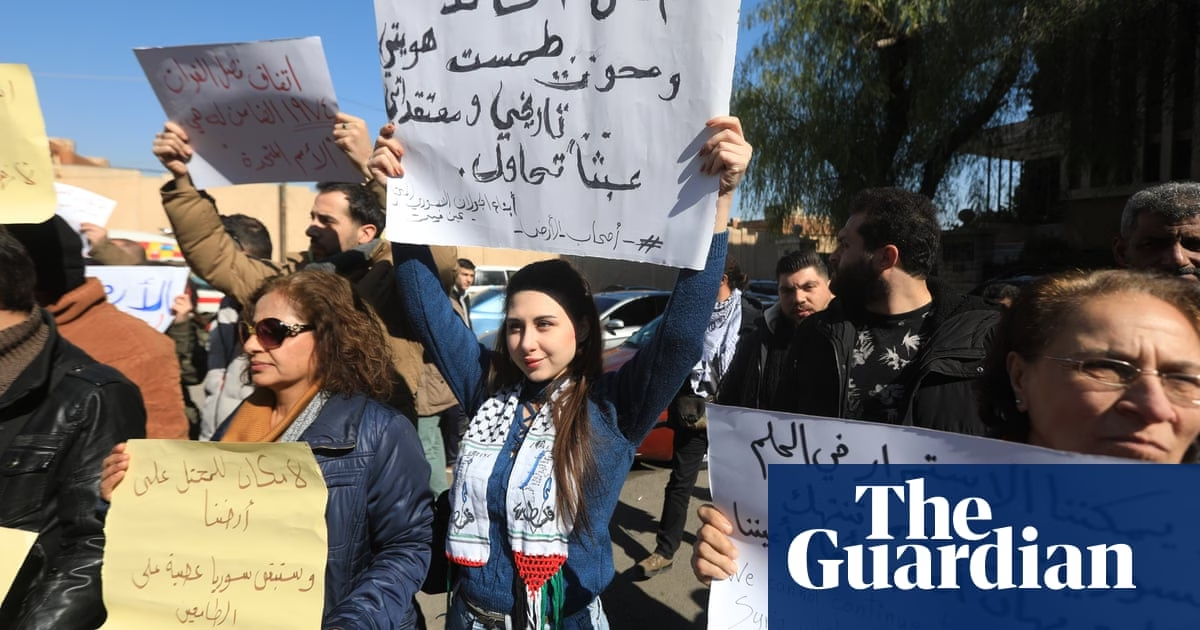Israeli warplanes have launched a series of airstrikes on military targets in regions outside Damascus and in the southern part of Syria. According to Israeli officials, the country’s army has been warned not to advance southward from the capital city.
Late on Tuesday, Israeli jets targeted military facilities in Kiswah, a town south of Damascus, as well as in the southern province of Deraa, as reported by Syrian media.
Israel’s Defence Minister, Israel Katz, confirmed these strikes in southern Syria and stated that Israel would not permit southern Syria to transform into a second southern Lebanon.
Katz further specified that any effort by the Syrian regime’s forces and the nation’s terrorist organizations to establish a presence in southern Syria’s security zone will be met with force.
On Sunday, Israeli Prime Minister, Benjamin Netanyahu, demanded complete demilitarization of southern Syria.
Following a Syrian rebel offensive spearheaded by the Islamist opposition group Hayat Tahrir al-Sham which overthrew the Assad regime on December 8, Israeli forces entered the UN buffer zone situated between Israel and Syria. These forces have stayed in the area despite objections from Syria’s nascent government and the UN, which oversees the demilitarized zone between the two countries.
In the days following the Assad regime’s downfall, Israel’s air force conducted numerous airstrikes against weapon depots, naval bases, and Syrian military infrastructure. The objective was to prevent the armaments from being acquired by rebel factions. Israeli airstrikes in Syria had largely ceased since the new year.
Within hours before the Israeli bombings on Tuesday, Syria denounced Israel’s incursion into the buffer zone and demanded the withdrawal of Israeli forces from Syrian territory. This statement came at the end of a national dialogue conference that gathered hundreds of Syrian activists and leaders to plan the country’s post-Assad political transition.
Besides issuing verbal condemnations, the new Syrian government has not engaged Israeli forces in Syria. Exhausted by 14 years of civil war and in the process of rebuilding the nation’s military, the Syrian army currently lacks the resources for a confrontation with its well-equipped southern neighbor.
Though Syria officially disbanded all military factions on January 29, the new government has yet to establish a unified national army. In reality, various militias still do not fully come under state control, with the defense ministry figuring out how to assimilate tens of thousands of rebel fighters.
Prior to Assad’s fall, Israel had periodically bombed Syria, though often without publicly claiming responsibility for these strikes. Most of Israel’s military actions in Syria focused on Iranian forces and the transfer of weapons to Hezbollah in Lebanon.
Hezbollah and Iranian-backed forces withdrew from Syria ahead of Assad’s fall. Nevertheless, Israel views Syria’s new leaders with suspicion, with Israel’s Foreign Minister, Gideon Sa’ar, labeling the new Syrian rulers as a “jihadist, Islamist terror group” on Monday.








